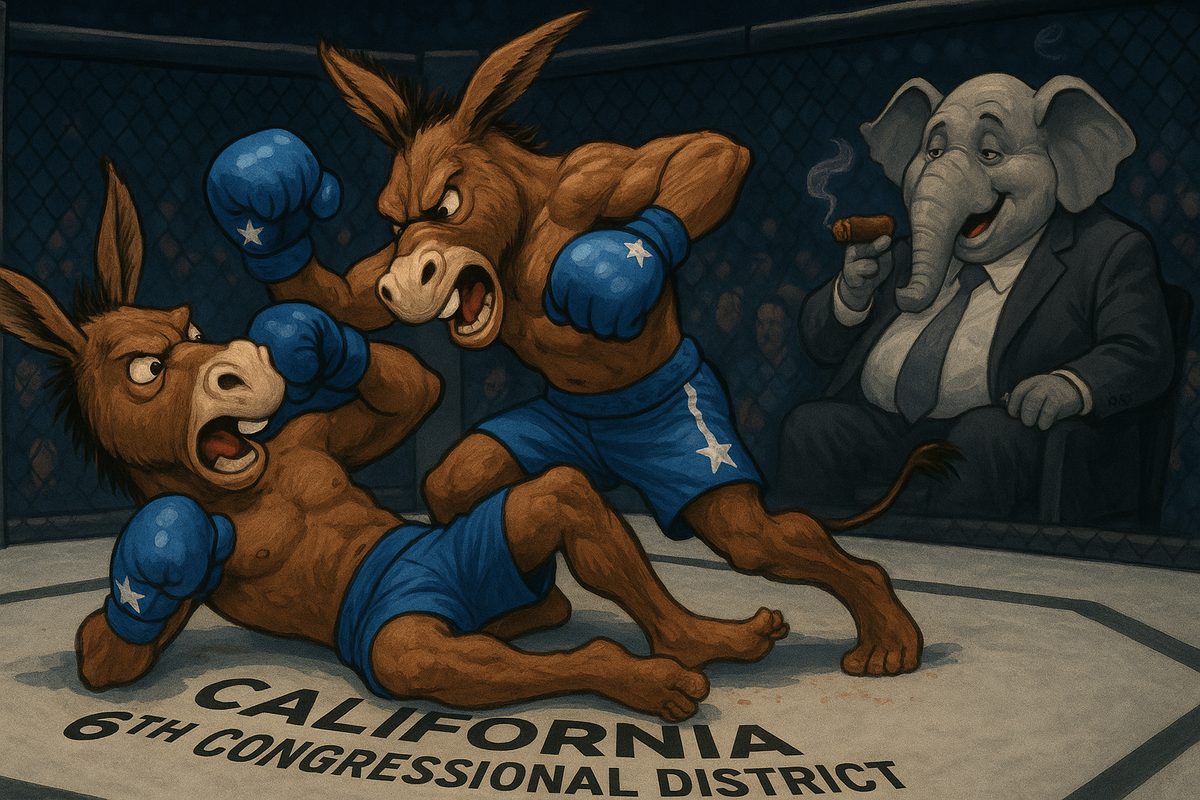Could David Hogg's progressive Democratic primary threat spell trouble for Congressman Ami Bera?
The physician-turned-lawmaker was among ten House Democrats who joined Republicans last month in censuring fellow Democrat Rep. Al Green (D-TX)

Gun-control and Democratic party activist David Hogg’s remarks on NewsNation last week reignited intraparty tensions. The 25-year-old DNC Vice Chair warned that up to a dozen Democratic members of Congress representing safely Democratic districts could face primary challenges in 2026.
Through his outside group, Leaders We Deserve, Hogg has pledged to raise $20 million to support insurgent campaigns against what he calls “complacent” incumbents - politicians he asserts have failed to connect with younger and more progressive voters. Democratic Senator Chuck Schumer, the Senate minority leader, has become a target for what many argue has been his lackadaisical response to Trump's policies.
His dual role as both a party insider and a progressive agitator has prompted Democratic National Committee Chair Ken Martin to propose bylaw changes that would force DNC officers to remain neutral in all Democratic primaries, effectively pressuring Hogg to choose between his leadership post and his activist ambitions. Party strategists worry that battles over safe-seat districts could siphon resources away from vulnerable races and further fracture the coalition needed to retake the House in 2026.
One potential target is Sacramento-area Democratic Congressman Dr. Ami Bera. The physician-turned-lawmaker was among ten House Democrats who joined Republicans last month in censuring fellow Democrat Rep. Al Green (D-TX) for interrupting President Trump’s joint session address - an action that sparked backlash from the party’s progressive wing.
Bera defended his vote as a matter of preserving decorum, but his willingness to side with Republicans on such a high-profile rebuke has drawn sharp criticism from younger activists.
Could Dr. Flojaune “Flo” Cofer, the epidemiologist who narrowly lost the 2024 Sacramento mayoral race by just 0.6 percentage points, be the progressive challenger to take him on? Cofer surged to a 28.3 percent plurality in the March primary, ultimately falling to Assemblyman Kevin McCarty by fewer than two thousand votes in November.
Though she has not publicly announced any plans to run for Congress, her grassroots network and name recognition in Bera’s district make her a figure to watch should Hogg’s movement seek a credible challenger and overcome party leadership hurdles.
Complicating matters further is California’s “top-two” primary system, under which all candidates, regardless of party affiliation, compete on a single ballot, and the two candidates with the highest vote totals advance to the general election. In a heavily Democratic district like Bera’s, this opens the door for two progressive Democrats to appear on the November ballot, effectively shutting out any Republican opposition while also heightening the risk that an incumbent could be unseated if a well-funded insurgent consolidates the anti-establishment vote.
Election dynamics could also produce a race between a well-funded Republican and a Democratic candidate weakened by a hard-fought primary. Even though Cook's Political Report ranks the Sixth District as Solid Democratic, such dynamics could shift the district, or at the very least, cause Democrats to divert precious resources to a district that should not have required assistance.
For Bera, the immediate danger lies not in a general election defeat but in a bruising primary fight that could damage his standing and drain resources. Should Hogg identify Bera as one of his dozen targets, the race may become a test case for whether the party’s establishment or its younger, more progressive wing will set the tone ahead of the 2026 midterms.
As Democrats grapple with the blowback from the 2024 losses and the rise of Donald Trump’s second term, Hogg’s challenge raises fundamental questions: Is it wiser to protect incumbency and avoid cage fights, or to risk short-term conflicts in pursuit of a long-term generational shift?
For Dr. Bera and, potentially, Flo Cofer, the answer may determine not only their political futures but also the Democratic Party’s ability to unite behind a refreshed, effective leadership team.




